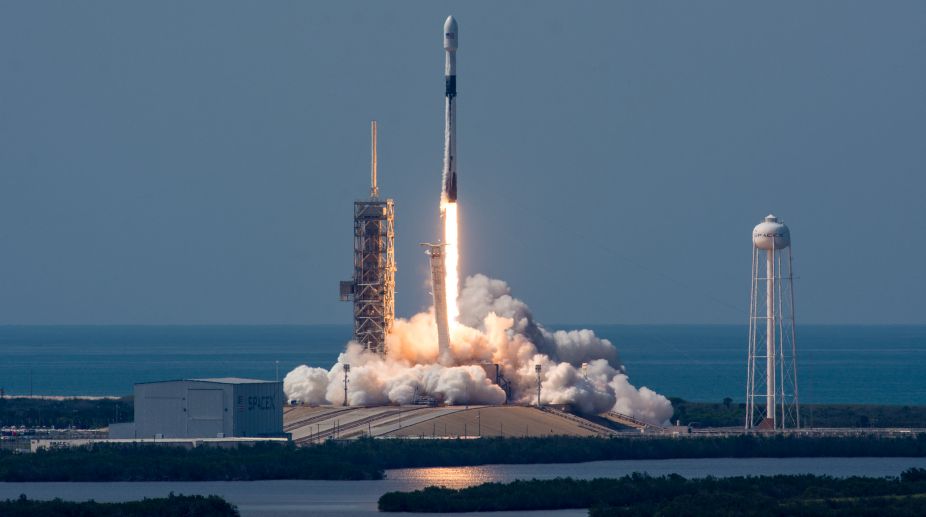BSF foils infiltration attempt
The Border Security Force (BSF) intercepted 10 Bangladeshi nationals along the Indo-Bangladesh border under the North Bengal Frontier, foiling an infiltration attempt.
“The government will certainly continue research in space technology and make best efforts to cope with any new technology in future”

SpaceX successfully launched Bangabandhu Satellite-1 from NASA’s Kennedy Space Center in Florida on May 11. (Photo: SpaceX)
Preparations have already started in Bangladesh to launch its second satellite, Bangabandhu-2, in the space. Prime Minister Sheikh Hasina said Bangabandhu-2 would be launched much ahead of the expiry of the Bangabandhu-1.
“We are taking preparations from now to launch Bangabandhu-2 so that our second satellite become operational before 15-year expiry time of the Bangabandhu-1, first geostationary satellite of Bangladesh launched to the orbit on May 11, 2018,” Hasina said in Parliament on Wednesday.
Advertisement
The local media reported that the PM was specific on laying importance on space technology as she said, “The government would certainly continue research in space technology and make best efforts to cope with any new technology in future.”
Advertisement
She said such research was very crucial for development of science and technology, disaster management as well as agriculture.
READ | Bangladesh celebrates Bangabandhu-1 launch as its space ambitions take flight
Replying to a question, Hasina said the location of the satellite at the 119.1° East longitude geostationary slot for Bangabandhu-1 had been hired from Sputnik of Russia. The location covers the space of all SAARC countries, besides Indonesia, Philippines, Turkmenistan, Uzbekistan and Kazakistan, and she said all these countries would be able to use the satellite.
The Bangladesh government reportedly purchased the slot for 15 years for 28 million US dollars.
Bangabandhu-1 is to provide broadband connectivity to rural areas throughout the country.
Hasina stressed that every part of the country, which is now out of internet services, would come under the satellite network.
While Bangabandhu-1 has been settled in its orbit and started giving signals, the PM said it would take some more time to receive clear footage.
Bangabandhu-1 is the first geostationary communications satellite of Bangladesh, which was launched from NASA’s Kennedy Space Center in Florida last month.
The primary service area of the satellite will encompass Bangladesh and the surrounding region. It will offer Ku-band coverage over Bangladesh and its territorial waters in the Bay of Bengal, as well as India, Nepal, Bhutan, Sri Lanka, the Philippines, and Indonesia. It will also provide C-band capacity for the entire region, according to SpeceX.
Development of the satellite programme, known as the “Bangabandhu Satellite Launching Project”, was managed by the Bangladesh Telecommunication Regulatory Commission (BTRC) with technical support from Space Partnership International (SPI).
The launch made Bangladesh the 57th country in the world and fourth in South Asia (after India, Pakistan and Sri Lanka) to own a satellite.
Advertisement